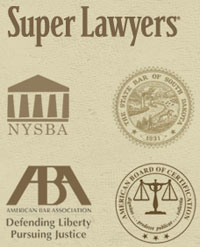SURFACE WATER DRAINAGE ISSUES — A LEGAL PERSPECTIVE
Water rights and water law issues are not limited to groundwater regulation and riparian surface water rights. This article will discuss the subject of surface water drainage issues, and will focus on the subject from the point of view of surface water drainage in South Dakota. The article will not discuss other jurisdictional water management issues such as tribal water law and regulation. In order for the management of a state’s future water drainage to be effective and efficient, one must consider the existing state of the law. In 1985, the South Dakota Legislature delegated responsibility for drainage decisions to individual counties, rather than have such matters handled at the state level. The state’s drainage legislation also allows counties to take emergency measures to regulate drainage, develop and enforce a county drainage plan, and regulate nonconforming drains or drainage schemes. This places the responsibility before county commissioners regardless of their (county commissioners) preference concerning who they would have regulate and manage such issues.
The authority granted to county commissioners can be broken into three broad areas. First, county government is given the designated legal authority to undertake drainage planning as a potential method of avoiding the problems that usually accompany times of high runoff. Second, the Legislature provided for the resolution of private disputes at the county level as an alternative to court actions. Both of those areas were new grants of authority to the counties; prior to 1985 there was no drainage planning mechanism in the statutes, and private disputes were left to the courts for resolution.
The third area of legislative delegation is the locally granted legal authority over the construction, maintenance and improvement of surface land drains. This was not a grant of “new authority”; county government in the state has had jurisdiction over such matters for many years. While the statutes were amended to some extent over older established practices, the basic county legal and management authority over construction, maintenance and repair of drainage works was not substantially altered.
A South Dakota board of county commissioners may not avoid the impact of these statutes by passing a resolution or ordinance divesting itself of authority over these matters. In fact, the statute allows for a mandamus action if the county refuses to perform any nondiscretionary duty. While the board is not compelled to undertake drainage projects or maintenance on its own, once a proper petition is received for either a project (individual or multiple parties) or maintenance and repair, the board has a duty to proceed as the statutes require.
The law does provide that a board may refrain from hearing specified types or categories of drainage disputes. That statute also provides, however, that when a board of resolution does not exercise its authority to handle drainage disputes, the circuit court is the entity with jurisdiction to hear those disputes. Its functions as a board of resolution, however, are separate from its functions with reference to construction, maintenance and repair of drainage projects and works. The state legislature gave the county commission authority to limit its jurisdiction as a board of resolution. However, no such opt out has been granted concerning the county commission’s jurisdiction over drainage projects including new projects, and construction, maintenance and repair of new and existing projects.
The articles and blog articles on this website should not be construed as legal advice on any specific facts or circumstances. The contents are intended for general information purposes only and may not be quoted or referred to in any other publication or proceeding without the prior written consent of David L Ganje.





